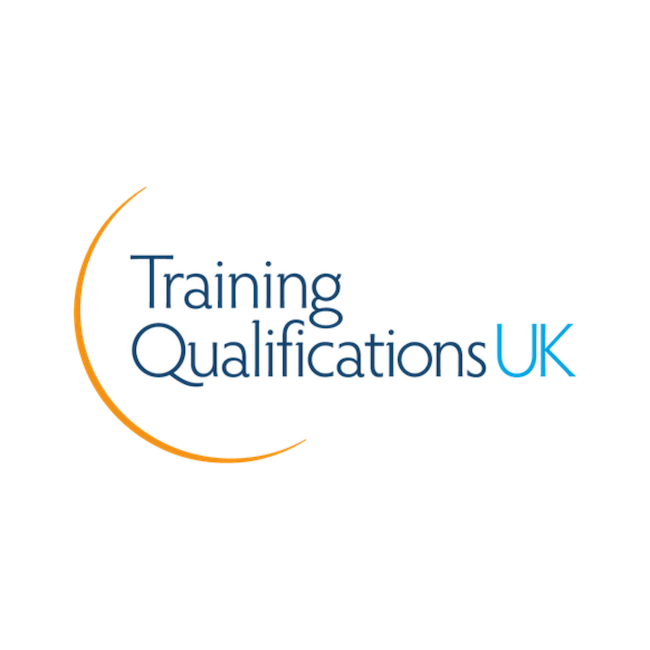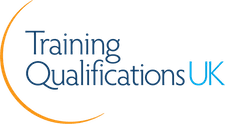
Awarding body:
TQUK
Qualification code:
601/7815/2
Study time:
12 months
Study method:
Online
£379.00
Choose your enrolment options
About this Course
By studying the TQUK Level 2 Certificate in Counselling Skills, students will have a much better understanding of how to work with people that have a range of psychological difficulties. The course is ideal for people that are looking to begin work in the mental health field and require a fully recognised qualification to working a wide range of job roles.
| Study Time: | 120 hours |
| Enrolment length: | 12 months |
| Course Format: | Online |
| Entry Requirements: | None Specific |
Upon completion of this qualification students are awarded an TQUK Level 2 certificate. All certification fees are included in your course fees.
See the TQUK Qualification specification for this course
See the Ofqual Qualification summary for this course
Qualification
To gain this TQUK Level 2 Certificate in Counselling Skills qualification you will need to submit, and pass, all of the tutor marked assignments. There are 6 assignments in the course and no need to purchase any textbooks as we provide all of the lessons and materials required to learn the syllabus. All assignments that are coursework based and are in an essay/question and answer style to test your knowledge of the topics covered in each of the course sections. On this course there is also one assignment that will require you to record a role play counselling session with a friend or family member. A video will need to be uploaded for this that will be assessed by your tutor.
Course Content
This TQUK Level 2 Certificate in Counselling Skills course assesses the following units:
Unit 1: Developing self-understanding and personal qualities
In this first unit we will be looking at counselling skills and personal development. This requires you to have the ability to reflect on your own practice and find ways to improve.
The unit will cover:
- Identifying your own values and beliefs
- How values and beliefs could affect helping relationships
- Motivation for helping others
- Blocks to listening and learning
- Benefits of giving feedback for personal development
- Identifying strengths in the helping relationship
- Areas for development
- Developing skills and qualities as a counsellor
Unit 2: Identifying and accessing support
Throughout this unit we will look at the support that is in place for counsellors. Although a counsellor is there to support service users, they must also be able to access their own support when required. Here we will look at how this is done and how to reflect on your own performance.
The unit will cover:
- Support needs for counsellors
- Accessing support
- Using personal and professional support to highlight issues in counselling
- Observations, thoughts, feelings and concerns when using counselling skills
- Benefits of self-reflection
Unit 3: Core counselling skills
In this unit we will look at the main counselling skills that are often used in helping relationships. Here we will discuss the boundaries that must be set in relationships as well as ways of agreeing objectives and strategising for the end of counselling sessions.
The unit will cover:
- Core counselling skills
- Using core skills in counselling
- Effective communication
- Boundaries in counselling relationships
- Conduct of the counsellor
- Objectives of a new helping relationship
- Strategies for ending relationships
- The impact of a helping relationship ending
Unit 4: Demonstrating counselling skills
This unit, although fairly short, will require you to show your practical skills in your assessment. Here we will look at the counselling skills that we have already learned and put these into a simulated environment where you can demonstrate your ability to work with a service user.
The unit will cover:
- Counselling skills in a helping relationship
- Commentary from the case study
- Assessment tips
Unit 5: Introduction to counselling skills and theories
In this part of the course we will delve deeper into counselling theory and look at some of the main areas of practice that you may wish to specialise in. These will be psychodynamic theory, person-centred theory and cognitive-behavioural theory. Throughout the unit we will look at the key elements of each of these theories and how to spot the main differences.
The unit will cover:
- Key elements of counselling theories
- Childhood experiences
- Alfred Adler
- Carl Jung
- Object relations theory and ego psychology
- Key elements of person-centred theory
- Maslow’s hierarchy of needs
- Key elements of cognitive behavioural theory
- B.F. Skinner and operant conditioning
- The ABC Model
- Key differences between theories
- How counselling theories underpin the use of counselling skills
Unit 6: Diversity and ethics
In this unit we have explored a number of different counselling theories. Each of these has a use to a counsellor and can be used in specific situations.
The unit will cover:
- Ethical frameworks
- Key aspects of ethical frameworks
- How ethical frameworks inform counselling skills
- Experiences of discrimination
- Considering discrimination
- Anti-discriminatory practices and legislation
- How diversity impacts counselling relationships
- Addressing differences in counselling skills practice
This course can be taken over a 12 month period but you can complete it as fast or as slowly as you wish.
Online study and instant enrolment
All of our students are given access to our Online Campus through their own personal login and password. As soon as you complete your enrolment, you would have immediate access to your account which allows you to make a start working through the lessons. Tackle your assignments as your own pace and contact your tutor to access any help and support you need. The course itself is set out in a very simple layout, making it easy to work through the topics and complete your assessments.
Our Online Campus includes:
- Instant enrolment – access everything on your course from the moment you enrol.
- Personal account logins – login any time, 24/7.
- Full support throughout – message your tutor, use our online chat or give us a call.
- Online assignment submissions – upload work online from the comfort of home.
- Self-led learning – study at your own pace so you can pass much faster.
- Safe e-portfolio system – store all of your work in your account.
- Progression tracking – easily see what assignments you have left to complete.
- Details help centre – get instructions and guidance every step of the way.
- Unlimited attempts – submit as many attempts at your assignments as you need.
Unlimited assessment submissions
All of the assessments for this course are completed through our Online Campus. You can attempt each one as many times as needed to ensure you pass. After every attempt, your tutor will provide detailed feedback and tips on how you can improve going forward. Quickly see your progress during your studies by checking your progress bar and seeing the remaining assessments you need to complete.
Get full tutor support
Throughout your enrolment with the Online Learning College, you can access support at any time you need. All students are assigned a personal tutor who will mark all of your work and provide detailed feedback after every submission. Your tutor will be an industry expert with a full knowledge of the course content and will be able to help you at any point along your learning journey. One of the best tools at your disposal is your tutor – you can ask as many questions of them as you wish to and they will be happy to help at any time.
We also have a brilliant support team on hand and available through email, online chat and over the phone. This team is there to help with any questions which are more generic, such as providing support in submitting work through your account or getting your certificate when you have completed your course. We pride ourselves on ensuring the support you receive is the best in the business – help and guidance is fast and detailed every time you contact a member of the team.
Assessments
To pass this course learners must pass 4 units set by the awarding body which have been broken down into 6 sections on the course. These are completed by navigating through the corresponding lessons and writing your answers to assignment questions. Once these have been read and marked by your personal tutor, feedback and marks are provided to students which contain helpful tips to improve work in future assignments. The course contains 5 assignments that are written and 1 that requires you to carry out a practical counselling session. This practical session can be done with a friend or family member who is playing the role of a client and must be recorded then uploaded to the online campus. To be able to complete this recording you will need to use a video camera or smart phone with a video and audio function so students should have access to this equipment in preparation for the course.
Enrolment Length
All of our courses are allocated plenty of time for students to complete their studies and all materials are self-led so that you can complete the course at your own pace, but you have access to the course on the Campus for 12 months from your enrollment date. Should you require additional time on one of our courses you can extend your enrolment by 30 days for an additional fee of £60. As well as this we operate a 14 day money back guarantee on every one of our qualifications- that’s how confident we are of how you will love studying with us!

TQUK certified qualification
This course is fully accredited with TQUK and comes with their certification upon completion. This means you will achieve a fully Ofqual recognised qualification with the certification fees included in the course costs.
TQUK Certified
Ofqual Regulated
Certificates Included
Frequently Asked Questions
Learn more about this course and others that we offer. If you still have any questions, simply contact our course advisors on 0800 772 0887 or email info@ol-college.com.
What is included in this TQUK Level 2 Certificate in Counselling Skills course?
All of our courses come with everything you need. Your lessons, tuition and certification costs with TQUK are included in the cost of this qualification. There is nothing else that you need to buy or pay for in order to finish the course and get accredited.
Is this course regulated?
Yes this TQUK Level 2 Certificate in Counselling Skills course is fully regulated through Ofqual which means it is recognised by all employers and linked to national standards. You can find the qualification number for the course under the Description section and this can be checked with both the awarding body (TQUK) and Ofqual to check it's legitimacy.
Included in the cost of this course is certification with TQUK. TQUK are an Ofqual-approved awarding body that develop nationally recognised qualifications in a variety of sectors. These qualifications are then taught by TQUK centres throughout the world to the highest levels possible.
TQUK is recognised as an Awarding Organisation by the qualification regulators (‘regulators’) for England, Wales and Northern Ireland. The regulators are the Office of the Qualifications and Examinations Regulator (Ofqual) in England, the Welsh Government in Wales and the Council for Curriculum, Examinations and Assessment (CCEA) in Northern Ireland.
Do I have to sit an exam?
No, there are no exams for this TQUK Level 2 Certificate in Counselling Skills course. Everything is assessed through coursework and assignments which you can submit at anytime within the enrolment term.
Am I assigned a tutor for this TQUK Level 2 Certificate in Counselling Skills course?
You are! Once you have enrolled then you will have an assigned tutor, this person is the one who will be marking your work, providing feedback, and passing your work. If you need to speak to your tutor at any time throughout your enrollment then you can message them via the campus and they will reply within 24 hours of out working hours.
Can I speak to someone before I enrol?
Of course! We have course advisors and a customer service team in the office Monday to Friday 9am until 5pm who will be happy to help and answer any questions that you may have. You can call us on 0800 772 0887, email us at info@ol-college.com or we even have a live chat facility.
How long do I have to study?
The enrolment term is 12 months, however, as long as you complete all of the written assignments and practical tasks (if applicable) then you can complete the course sooner if you wish. If you need any additional time after the 12 months then you can also extend which costs £60 per month and you can do this as many times as needed.
What are the payment options?
There are various payment options for this TQUK Level 2 Certificate in Counselling Skills course. The first option will be for you to purchase the course and pay in full upon enrolment. The second option is the pay monthly option, this is completely interest free and splits the cost into 12 monthly payments. Finally, we can send an invoice with 30 days payment terms if your employer will be funding the cost of the course – if you would like this option, then please ask your employer to get in contact with us so we can provide them with the details we will need.
Do you offer any funding for the course?
Unfortunately we don’t offer any free or funded courses but you can split the cost into 12 monthly payments which is completely interest free.
Do I need to buy anything else for this TQUK Level 2 Certificate in Counselling Skills course?
Everything that you will need will be provided to you when you enrol, you will also need to complete some of your own research too. Buying text books and other resources can become costly so we don’t ask you to or recommend buying anything, there is lots of free and very useful information online!
How do I see my course material/resources?
Everything that you will need for your course will be accessible on our online campus. You can select the online and paper versions of most of our courses too, if you select this option then there will be an additional £35 cost, this covers the cost of us printing out a full course pack in a ring binder folder and sending out via Royal Mail 1st Class, Tracked & Signed delivery.
How do I log in and access my course?
Once you have enrolled then you have access to the campus right away to get started on your course. You can log in by going to our website and clicking ‘Log in’ at the top right hand side of the page. Your username is the email address that you used to enrol and your password is the one you created at the checkout when enrolling.
When will I receive my certificate?
Once you have completed and passed all units and your course is paid in full (either paid in full upon enrolment or if paying monthly then the remaining balance paid or monthly payments complete), then we can request your certificate from the Awarding Body. Certificate’s take 6-12 weeks to arrive with us and once we receive it we will then contact you to confirm the address to post it to. Certificate’s are sent via Royal Mail 1st Class, Tracked & Signed delivery.
What happens if I fail an assignment?
If you fail an assignment, then please do not worry! You can resubmit your assignment as many times as needed until you pass. Each time you submit an assignment then your tutor will mark it and provide feedback, you can then make the amendments and resubmit and have the new version marked again.
How long does it take to mark my work?
We have a marking timescale of 5 working days from the submission, your tutor will mark your work and provide feedback with if you need to make any amendments to enable you to pass. Please note, we do ask that learners don’t upload more than one submission at a time as this will delay the marking not just for yourself but for other learners too.
Do I have to attend or view any live/virtual lessons?
You don’t, everything is in written, text, image and diagram format. You will have access to the campus 24/7 to be able to log in and complete your work. You won’t need to view any videos or audio lessons.
What device can I/shall I use?
As you will have assignments to write and type up for submission then we would recommend using a computer or laptop for this as you will need to use a software such as Microsoft Word or Google Docs to type these. You may also be able to use an iPad/tablet for this. You can use a smartphone if you wish but you may find it difficult and it would probably be easier on a larger screen/device.
How do I complete my assignments?
Once you have enrolled and accessed the campus you will see your assignment tasks and criteria of what needs to be covered in each assignment.
Our latest reviews
Fully supported by an online tutor
Our courses come with full tuition from an expert tutor. Your tutor can be contacted through our messaging system, and the same person will provide feedback on your assignments. We also have a dedicated admin team on hand to help over the phone, through live chat, and by email.
1 working day for replies to messages
5 working days for feedback on assignment
Our turnaround times are the best in the industry!

Start today with immediate enrolment
Expert support at all times
Our speedy support promise
When you study with us, we ensure a speedy service. That's why our current timeframes for marking and support are the best in the business.







